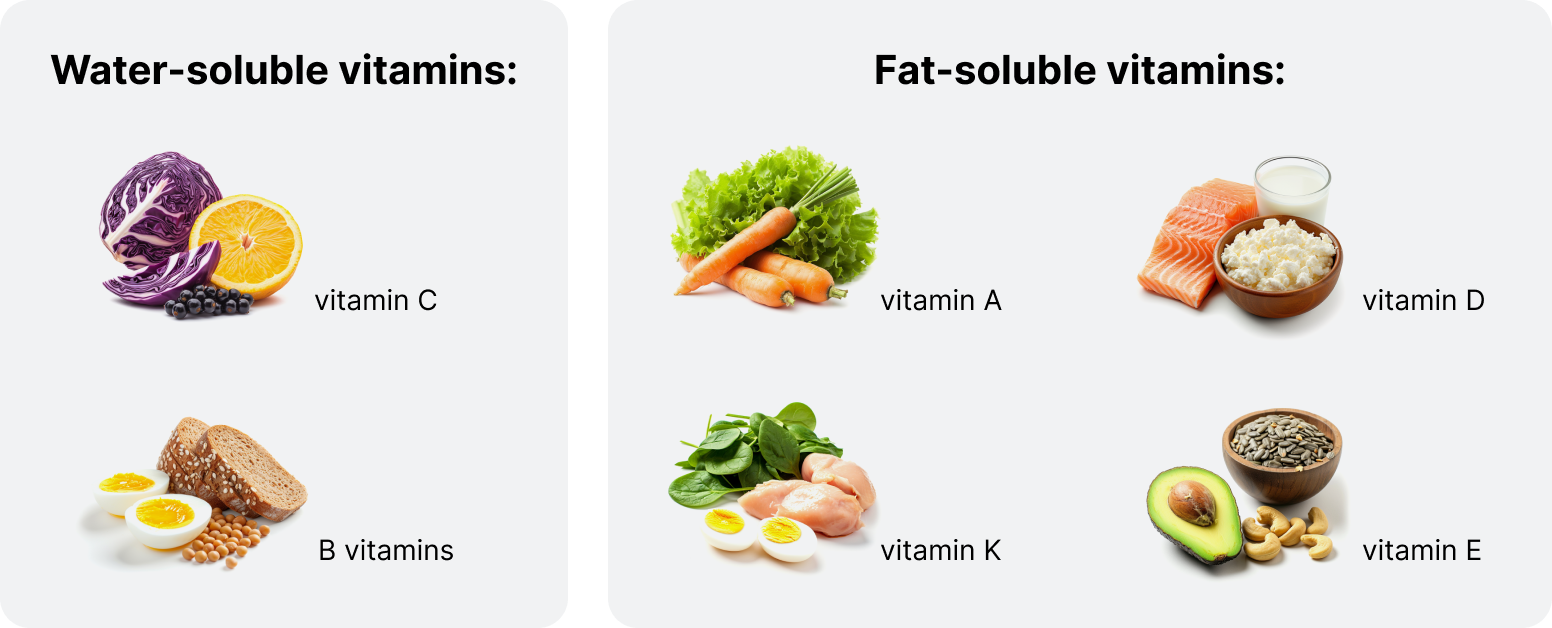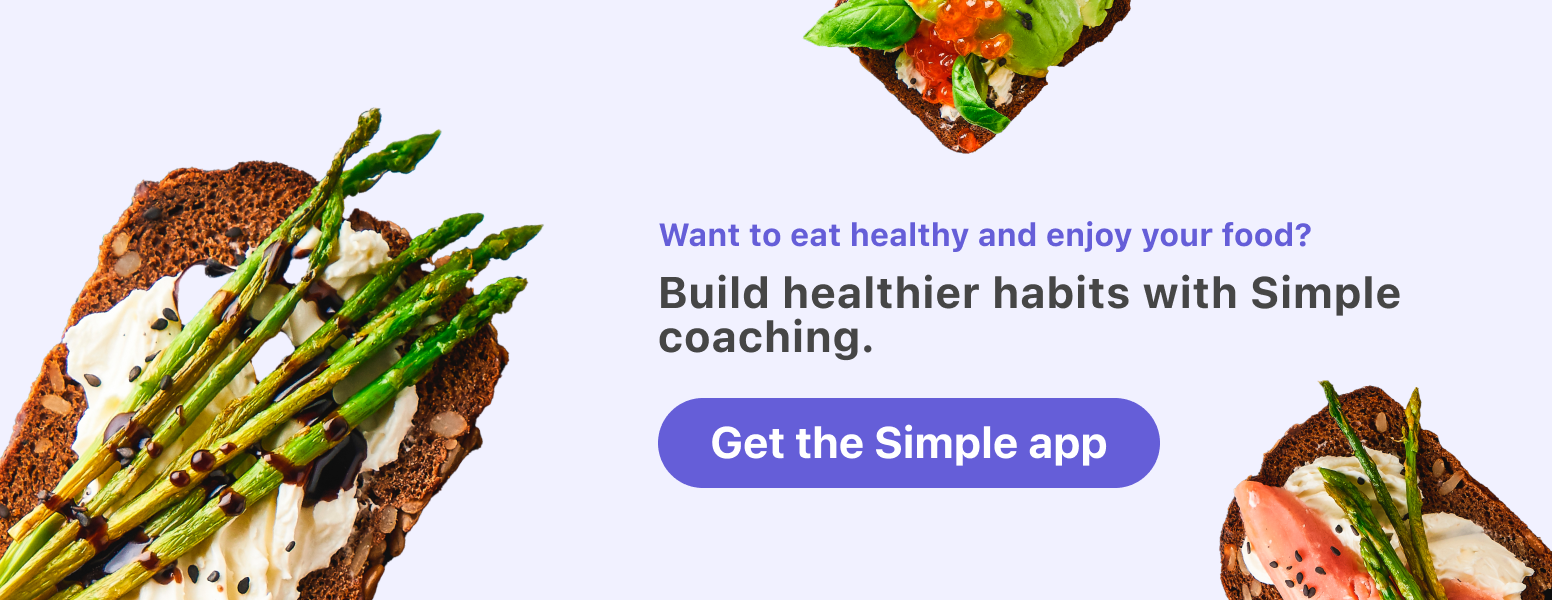Does taking vitamins break a fast? — Explained by Simple

When you’re intermittent fasting, you naturally want to make sure you get all your nutrients in. It’s only logical to wonder — does taking multivitamins break a fast?
Let’s find out.

Will taking vitamins break a fast?
Grab your vitamin bottle(s). Check the ingredients and nutrition information. Run the details past our “Can I take these vitamins while intermittent fasting” checklist below.
Yes, your vitamins will break your fast if:
☑️ they contain more than 9 calories per serving
☑️ they contain glucose syrup, sugar, dextrose, vegetable oils, juice concentrate, etc.
Vitamins likely to fall into this category: gummy vitamins and vitamins with a sweet coating.
No, your vitamins won’t break your fast if:
☑️ they contain zero calories
☑️ there are no calorie-containing ingredients
Not all vitamin supplements have calorie information, so use your best judgment. If they contain ingredients like sugar or oil, assume they will break your fast.
If you need support figuring out how to fast, what to eat, and the best habits to lose weight and have more energy, take our quiz and let Simple help.
What are vitamins?
If protein, carbs, and fats are macronutrients, vitamins are micronutrients. We get them from the food we eat, and they play all kinds of roles within the body. They might be micro, but we literally can’t function without them.
These are vitamins:
- vitamin A
- B vitamins (thiamin, riboflavin, niacin, folic acid, etc.)
- vitamin C
- vitamin D
- vitamin E
- vitamin K
None of these will break a fast unless they contain calories.
We take vitamins to supplement our diets. There are other supplements we might take for health benefits while fasting that aren’t vitamins. This is an important distinction to know when learning about what breaks a fast because while multivitamin supplements are often fast-friendly, many other supplements aren’t.
These are supplements:
- minerals (calcium, magnesium, iron, etc.)
- caffeine
- greens powders
- herbs and spices (echinacea, ginger, etc.)
- enzymes
- amino acids
- electrolytes
- protein powder
- collagen
- creatine
- probiotics
Some of these will (or could) break a fast.
“When do I take vitamins while fasting?” is also worth considering. Vitamins come in two types:

We digest fat-soluble vitamins better with food. So, if you take a multivitamin — even one with zero calories — consider taking it during your eating window to get the best from it.
Nutritional value
Vitamins punch well above their weight in terms of the value they bring to our bodies.[1] Check out this incredible list.
- Vitamin A keeps your heart, lungs, and liver functioning well. It also helps you see, reproduce, and fight off illness, injury, and infection.
- B vitamins help make energy from the carbohydrates, fats, and proteins you eat. Some also support cell development, growth, and function.
- Vitamin C boosts your immune system and increases the amount of iron you absorb. It protects our cells from free radicals and helps us heal from wounds.
- Vitamin D helps you absorb calcium and build stronger bones, as well as supporting your immune system.
- Vitamin E protects your cells from free radicals, improves your immune system, and helps prevent blood clots.
- Vitamin K also supports blood clotting and healthy bones.
Health benefits and possible drawbacks of taking vitamins while intermittent fasting
The benefits of vitamins are crystal clear. Getting these tiny nutrition powerhouses into your diet is a big boost to your well-being.
So, taking vitamins makes sense, especially while you’re fasting. Because you’re likely eating less food, intermittent fasting can mean you get fewer vitamins overall. We cover some real-food ways to avoid that here: what to eat during intermittent fasting, but taking a multivitamin is a good backup to make sure your body gets the nutrition-love it needs.
Important note: intermittent fasting isn’t safe for everyone. Make sure to speak with your healthcare provider if you:
- have type 1 diabetes
- have a BMI of less than 18.5
- are 18 and under or 80 years or older
- are pregnant, breastfeeding, or trying to conceive
- are on medication
- have a history of or are currently diagnosed with disordered eating
Tips on taking vitamins during a fast
Can you take vitamins while intermittent fasting? Yes, you can! Here are our top tips.
- Always check with your healthcare provider first to make sure that it’s OK for you to take vitamin supplements.
- Take fat-soluble vitamins during your eating window for better absorption.
- Check the ingredients to make sure your vitamins are fasting-friendly. If in doubt, keep them inside your eating window.
- If you feel nauseous taking vitamins on an empty stomach, take them during your eating window.
- Set reminders so you remember to take your vitamins — don’t rely solely on your motivation or memory as you build the habit!
- Bonus tip: use your vitamin-taking time as an opportunity to hydrate. (Habit stacking for the win!) This guide will clue you in on what you can drink while fasting.
Whether you’re intermittent fasting for blood sugar control, weight loss, or other health benefits like improving your insulin response, taking vitamins will help your body stay happy and healthy — and won’t break a fast!

